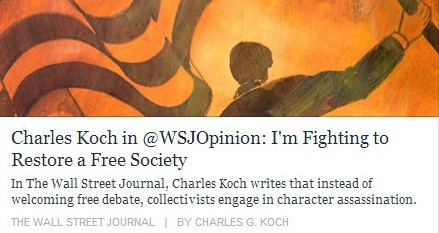Category: Economic freedom
-

New Data Show Migrants Were More Likely to Be Released by Trump Than Biden
This article from Cato Institute’s blog, written by David J. Bier on November 2, 2023, presents surprising data on migrant arrests and releases under the Trump and Biden administrations. It reveals that, contrary to common perception, the Trump administration released a higher percentage of migrants arrested at the border than the Biden administration. During Trump’s…
-

Support the Voice for Liberty: Become a Patron
Patreon is a popular service that helps writers and creators generate income to keep their content flowing. You can support the Voice for Liberty by using Patreon.
-
Derek Yonai: Teaching the Morality of Free Enterprise
Derek K. Yonai, JD, Ph.D., Director of the Koch Center for Leadership & Ethics at Emporia State University, spoke to the Wichita Pachyderm Club January 11, 2019, on the topic of Teaching the Morality of Free Enterprise.
-

Government creates obstacles to progress
“Overcoming obstacles can be a difficult challenge even on a level playing field. We need to change the rigged system that favors the politically connected over the hardworking, honest citizen,” writes Charles Koch in a recent edition of Perspectives.
-

Soviet-style society seen as Wichita’s future
If local governments don’t fund arts, we risk a Soviet-style existence. This line of thought is precisely backwards.
-

For Tiahrt, economic freedom is not a good thing, it seems
Kansas congressional candidate Todd Tiahrt has criticized Charles Koch and Americans for Prosperity, leading us to wonder if Tiahrt understands or embraces the principles of economic freedom and free markets.
-

Cronyism is welfare for rich and powerful, writes Charles G. Koch
The central belief and fatal conceit of the current administration is that you are incapable of running your own life, but those in power are capable of running it for you. This is the essence of big government and collectivism, writes Charles G. Koch.
-

Economic freedom, the key to improving lives
Economic freedom leads to better lives for people as measured in a variety of ways. This is true for everyone, especially for poor people.
-
Charles G. Koch: Corporate cronyism harms America
When businesses feed at the federal trough, they threaten public support for business and free markets, explains Charles G. Koch.
-
Economic freedom improves our lives
Economic freedom, in countries where it is allowed to thrive, leads to better lives for people as measured in a variety of ways. This is true for everyone, especially for poor people.
-
Intellectuals vs. the rest of us
Why are so many opposed to private property and free exchange — capitalism, in other words — in favor of large-scale government interventionism? Lack of knowledge, or ignorance, is one answer, but there is another.
-
Cronyism is harmful to our standard of living
The growing partnership between business and government is a destructive force, undermining not just our economy and our political system, but the very foundations of our culture, writes Charles G. Koch.